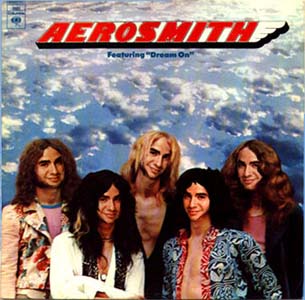|
If the '70s singer/songwriters shared one quality, it was this imperative:
contemplate yourself. So, conditioned by them to follow that motto, I've tried to
retrace the psychological progression of my tastes, and learn why I like
the songs I like. The scenario that follows may carry the low-tragic tone
of an acoustic ballad, or one of the Top 40 tearjerkers of the Bicentennial era.
If it recalls "Vienna" as well as "Billy Don't Be A Hero," I've done my job.
When I was 12 or 13, the orthodontist observed that my mild overbite hadn't
abated, and recommended to my mother that I wear braces for a year. Mom, having
noticed that I'd recently gotten glasses, had bad skin, and was also smaller than
even most of the girls in my class, decided not to add the term "metal mouth" to
my adversaries' vocabulary of taunts, which already included "shrimp,"
"pizza-face," and "Jew."

|

|
The tough kids in school had STP stickers on their notebooks (which they never
opened), and wore perfectly faded denim jackets. In the golden age of
Testosterone Rock, bands like Aerosmith, Skynyrd, KISS, and Alice Cooper marketed
nothing smaller than myth, proffering fantasies of adult pleasures to juvenile
audiences. In Aerosmith's smash "Walk This Way," Steven Tyler recounts the tale
of having been a "high-school loser" (so defined because he'd never "made
it"--just the kind of mysterious sexual code I found compelling and
confusing). However, "Walk This Way" isn't about BEING a loser, it's about
the safe distance provided by adult triumph, implied in Tyler's lascivious voice.
It's about escape, which was an incomprehensible theme to those of us who felt
imprisoned in adolescence.
|

|
I was already ashamed of my lack of rock expertise--asked by a junior-high
classmate one day for an opinion of Alice Cooper, I eagerly said, "She's really
weird," only to be scornfully informed that Alice was a he. Hard rock and heavy
metal were the battle hymns of my oppressors, who skipped class and smoked pot in
the school parking lot. Instead, I was drawn to the antithetic music: proudly
wimpy ballads by singers whose voices were tender, not rough, and who sang not as
part of a band, but alone. There was Billy Joel, Jackson Browne, James
Taylor, and a few others whose songs dwelt on weakness, maybe even
glorified it as evidence of heightened sensitivity in a brutal world. I would
have felt they'd "found my letters, and read each one out loud," except I
wasn't the type to write letters.

|



